Testing The Temperature 5
What do voters in Northern Ireland think about the Protocol on Ireland/Northern Ireland?
David Phinnemore, Katy Hayward and Lisa Whitten[1]
June 2022
The report is available to download here: Testing the Temperature V
Key Findings
- Opinion among voters in Northern Ireland on the Protocol on Ireland/Northern Ireland continues to be deeply divided, with only a small proportion of respondents having ‘no opinion’ on the topic.
- A majority (55%) currently see the Protocol as the appropriate means for managing the impact of Brexit on Northern Ireland and 53% as overall ‘a good thing for Northern Ireland’; 38% and 37% of respondents respectively are of the opposite view.
- Over two thirds of respondents (72%) believe that particular arrangements for Northern Ireland are necessary to manage the impact of Brexit.
- Almost 6 in 10 respondents (59%) do not think that Brexit is overall ‘a good thing’ for the United Kingdom.
- The most negative views on the perceived current impact of the Protocol are in relation to its political implications and most positive are on its economic consequences.
- 55% think the Protocol is having a positive impact on the Northern Ireland economy, and 65% think it offers unique opportunities that could benefit Northern Ireland.
- 59% think it is having a negative impact on political stability in Northern Ireland and on British-Irish relations.
- 50% think the Protocol is positive for the 1998 Belfast (Good Friday) Agreement whilst 38% think it is having a negative effect on it.
- 46% think the Protocol is having a negative impact on Northern Ireland’s constitutional place in the UK and 47% see it as negative for Northern Ireland place in the UK internal market.
- 36% of voters in Northern Ireland have no concerns about the full operational scope and impact of the Protocol; 55% do have concerns about the Protocol were it to be fully implemented with no adjustment after the grace periods.
- Customs declarations for parcels is the issue of most concern for this 55%, followed by restrictions on plants and seeds and chilled meats being brought into Northern Ireland from Great Britain and requirements for bringing pets from Great Britain into Northern Ireland.
- The issue of least concern is Northern Ireland aligning with the EU’s standards for the production of goods, followed by the application of EU rules on subsidy control and state aid.
- There are mixed levels of trust/distrust in political actors and institutions when it comes to managing Northern Ireland’s interest with respect to the Protocol
- The UK government is by far the most distrusted (84% distrust including 55% strongly distrust) and least trusted (5% trust) of all actors
- Voters in Northern Ireland are marginally more inclined to trust (47%) than distrust (43%) the European Commission/EU.
- These results are similar to those for the Irish government regarding the Protocol (42% distrust, 45% trust) with trust levels increasing compared to previous polls.
- Trust levels in all five political parties from the outgoing Northern Ireland Executive have increased and levels of distrust decreased.
- The Alliance Party is the most trusted of the five parties (50% trust, 38% distrust) and the DUP is the most distrusted (68% distrust, 25% trust).
- Northern Ireland business representatives continue to be the only actors who enjoy the trust of a majority of respondents (60%) in managing Northern Ireland’s interests with respect to the Protocol. This figure has grown steadily over the five polls.
- There are clear patterns with respect to the majority view of voters in Northern Ireland when it comes to what should happen next with the Protocol
- A clear majority of respondents (74%) would prefer to see the UK and the EU reaching an agreement on the Protocol’s implementation than the UK take unilateral action.
- A clear majority (57%) does not believe the UK would be justified in taking unilateral action to suspend elements of the Protocol; however, 38% believe that the UK government would be justified in doing so.
- A similar proportion of respondents (55%) maintains that the EU would be justified in taking retaliatory action if the UK did take unilateral action to suspend elements of the Protocol. Just over a third (35%) disagree.
- Self-declared understanding of the Protocol remains high, although most respondents would welcome more factual information.
- A substantial majority of respondents continues to claim ‘a good understanding’ of the Protocol.
- The same proportion of respondents (77%) would like to see the EU and the UK jointly present more factual information on the Protocol.
- The same proportion of respondents (77%) have heard about the measures adopted by the EU to maintain the security of supply of medicines into Northern Ireland.
- Respondents remain split on how their MLAs should vote in the 2024 ‘democratic consent’ vote.
- Just over half (52%) of respondents favour MLAs voting for the continued application of the Protocol; 40% want MLAs to vote against. The margin of difference is the largest to date across the five polls conducted.
- The Protocol mattered for most voters in the recent Northern Ireland Assembly election, although for 28% a candidate’s position on the Protocol did not influence whether they voted for them.
- Only 5% voted for candidates with opposing views of the Protocol.
Introduction
As part of a three-year ESRC-funded research project on the Protocol on Ireland/ Northern Ireland, a series of regular surveys has been commissioned to ‘temperature test’ voter attitudes on a range of issues relating to Brexit, the Protocol, and their implications for Northern Ireland. This is the only polling in Northern Ireland dedicated to the topic of the Protocol and which has been running at regular intervals since the Protocol entered into force on 1 January 2021 following the end of the transition period.
The surveys are being conducted every four months during 2021-2023 by LucidTalk using its online Northern Ireland Opinion Panel. This means that the survey is not based on systematic random sampling across Northern Ireland society. Instead, it is a reliable indicator of the opinion of Northern Ireland voters who take an interest in current affairs and politics, and who are likely to exercise their right to vote.
LucidTalk have a strong track record of accurately predicting election and referendum results in Northern Ireland on the basis of polling this Opinion Panel. The results presented here are from a sample of 1497 responses to the survey undertaken on 3-6 June 2022. The sample of responses used is weighted to be representative of the adult population of Northern Ireland (e.g. by age, gender, party support). All results presented are accurate to a margin of error of +/-2.3% at 95% confidence.
The context for this poll
This fifth survey was held almost eighteen months into the post-transition period of Brexit and four months after the fourth survey in February 2022. The previous surveys took place in March, June and October 2021. This poll was conducted in the middle of ongoing contestation around the implementation, and indeed existence, of the Protocol. There were increasing indications that the UK was preparing to take unilateral action (as it indeed moved to do with the Northern Ireland Protocol bill in June 2022, see below).
At the time of the February poll, there was a sense that UK-EU relations over the Protocol had become, at least in terms of tone, more convivial. A meeting of the EU-UK Joint Committee (the first since June 2021) was held on 21 February 2022 with Foreign Secretary Liz Truss and her EU co-chair, Maroş Šefčovič, managing to produce a joint statement. A meeting of the Specialised Committee for the Protocol was then held on 8 March 2022. The European Commission also proposed a schedule of meetings at technical level to carry on discussions on how to resolve outstanding issues regarding implementation of the Protocol.
With the UK government increasingly insisting that any talks should focus on changing the Protocol – and the EU refusing to engage in any renegotiation – there was limited scope for talks. Although at a technical level, the Joint Consultative Working Group did continue to meet monthly, formal engagement at a more senior and political level effectively ground to a halt as the Northern Ireland Assembly election on 5 May 2022 moved closer and efforts were made, notably by unionist political parties, to ensure that the Protocol became a core issue in the election.
Results from the polling for this report show that for many voters the Protocol was a significant factor in how they cast their vote(s) in the election (see below), although not all parties campaigned strongly on the issue of the Protocol’s future and the contestation around it. The Protocol did not feature prominently in Sinn Féin’s campaign, but the party secured most first preference votes and seats in the Assembly.
The leader of the Democratic Unionist Party, Jeffrey Donaldson, announced after the election that the DUP would nominate neither a Speaker to the Assembly nor a deputy First Minister until the UK government had taken ‘decisive action’ on the Protocol. This has left Northern Ireland without a sitting Assembly, with only a caretaker Executive (rolled over from the previous mandate) and no First Minister or deputy First Minister. Polling has indicated majority support among unionist voters for his position.
Soon after the election, the UK government was not only insisting on substantive changes to the Protocol but also confirming reports that it would be proposing domestic legislation that would allow it to unilaterally disapply elements of the Protocol. The reaction of the EU was to insist that joint solutions should and could be found ‘legitimate practical issues raised by people and businesses in Northern Ireland’ and ‘within the framework of the Protocol’. These would be based on proposals the European Commission had made in October 2021. The UK meanwhile wanted a ‘negotiated solution’ – so a renegotiation of the Protocol – based on proposals it had put forward in July 2021.
The immediate backdrop to the polling was therefore one of partial implementation of the Protocol, grace periods, contestation within Northern Ireland and between the UK and the EU around the Protocol, and deteriorating UK-EU relations. The latter would deteriorate further once the UK government on 13 June tabled its Northern Ireland Protocol bill and proposals for unilateral disapplication of much of the Protocol and the EU responded by (re-)launching infringement proceedings against the UK for non-implementation of obligations under the Protocol. It also published revised versions of some of its October 2021 positions papers. All this came after the poll for this report, however. The poll was conducted on 3-6 June, so almost a month after the Assembly elections, but before the Northern Ireland Protocol bill was published.
Respondents to the poll were asked six sets of questions and offered the opportunity to provide written comments in response to the poll. The questions covered attitudes towards Brexit and the Protocol, assessments of the impact of the Protocol, issues of concern, experience of the availability of goods, and trust in different actors to manage it. The survey also asked participants how they would like members of the Northern Ireland Assembly (MLAs) to vote in the ‘democratic consent’ vote on Articles 5-10 of the Protocol that will be held at the end of 2024. A final section included questions on various issues, including options for the governance of the Protocol, and whether the UK would be justified in taking unilateral action to suspend elements of the Protocol.
Attitudes to Brexit and the Protocol
Current opinion on Brexit and the Protocol continues to be divided and generally consistent with the previous ‘Testing the Temperature’ polls held in 2021-22. Small increases in more positive opinion of the Protocol (initially identified in October 2021) are once again seen in this latest poll.
Three quarters of respondents claim a ‘good understanding’ of the Protocol (see Figure 1). The proportion of respondents who think that reliable information exists on the Protocol remains steady at 46% (compared to 47% in February 2022) and above the lowest level recorded to date of 37% in March 2021.
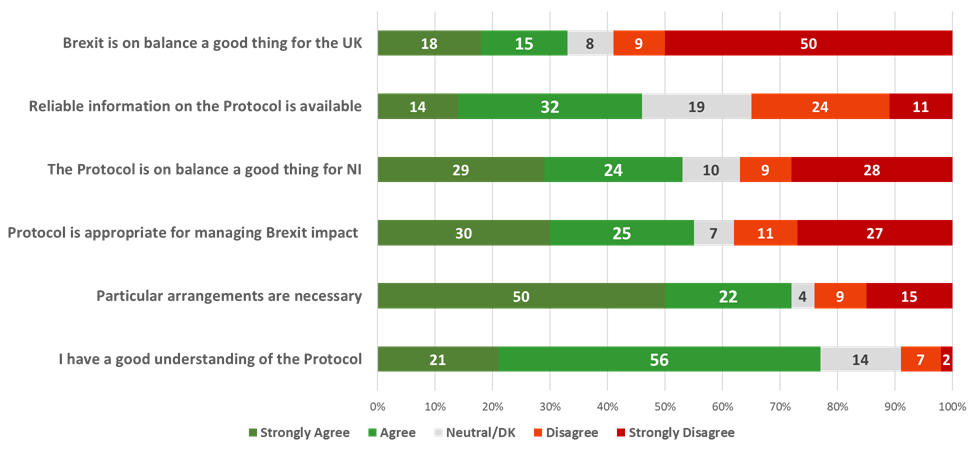
Figure 1. Opinion of Brexit and the Protocol [2]
In line with previous polls, over two thirds of respondents agree that ‘particular arrangements’ for Northern Ireland are needed to manage the effects of Brexit, however the proportion has now risen to 72% (compared to 67% in February 2022). The proportion of all respondents being strongly of this view (50%) has also risen since the previous poll (44%). There continues to be a clear majority (59%) who disagree that Brexit is on balance ‘a good thing for the UK’, with 50% being strongly of that opinion. One-third of respondents (33%) agree or strongly agree that Brexit is on balance ‘good’ for the UK; this is down from 36% in February 2022.
The proportion of respondents who agree or strongly agree that the Protocol provides an appropriate means for managing the effects of Brexit for Northern Ireland stands at 55%, so higher than in previous polls (e.g. 51% in February 2002, 47% in June 2021). In the two previous polls, 1 in 2 respondents regarded the Protocol as ‘on balance, a good thing’ for Northern Ireland; the latest poll sees a small increase to 53%. In June 2021, 43% of respondents were of this view.
This shift in opinion to majority acceptance of the Protocol is also reflected in responses to the question on whether the Protocol provides Northern Ireland with a ‘unique set of post-Brexit economic opportunities compared to the rest of the UK which if exploited could benefit Northern Ireland’. As in the October 2021 and February 2022 polls, almost two thirds of respondents (65%) agree that there are economic opportunities from the Protocol; a quarter of respondents disagree.
Views on the impact of the Protocol
The survey asked respondents for their assessment of the current impact of the Protocol. Important to note here is that grace periods for the application of some of the Protocol’s provisions are in place and various formalities, checks and controls on the movement of goods into Northern Ireland from Great Britain are either not being implemented or only being implemented partially.
Opinions remain divided on the impact of the Protocol (see Figure 2). Nearly three fifths of respondents (59%) see the Protocol impacting negatively on political stability in Northern Ireland. This is the same figure as in October 2021 although is down on other polls (e.g. February 2022 – 64%, June 2021 – 68%).
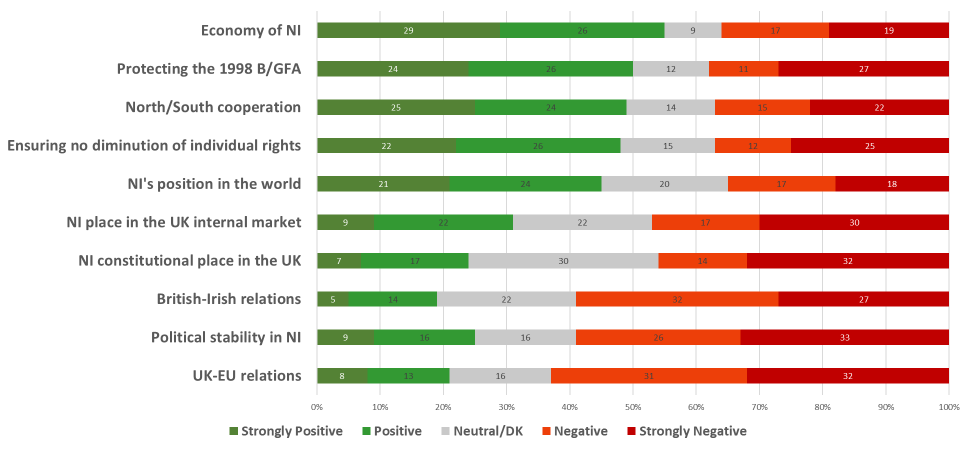
Figure 2. Overall assessment of the current impact of the Protocol [3]
The Protocol’s current impact on British-Irish relations and UK-EU relations also continues to be regarded by around three fifths of respondents (59% and 63% respectively) as negative, although, as in the previous two polls, there continues to be more positive perspectives on this than in June 2021 (67% and 70% respectively).
The proportion of respondents seeing the Protocol’s current impact as negative on Northern Ireland’s constitutional position in the UK (46%) and its place in the UK internal market (47%) is notably lower than in the October 2021 poll (when it was 57% and 54% respectively).
On the impact of the Protocol on ensuring ‘no diminution’ of individual rights as set out in the 1998 Agreement, the gap between those who see the current impact of the Protocol as positive (48%) and those who view the current impact as negative (37%) is the widest recorded in any of the five polls to date.
As in the previous polls, opinions have shifted on other topics. Whereas in the first poll (March 2021), only a third of respondents viewed the current impact of the Protocol on the economy of Northern Ireland, protecting the 1998 Agreement, and north-south cooperation on the island of Ireland as positive, the proportion is now around half.
On the question of the impact of the Protocol of the economy of Northern Ireland, 55% currently view it as positive (up from 48% in February 2022). Half of respondents (50%) view the current impact of the Protocol on protecting the 1998 Agreement as positive; 38% view it as negative.
Written comments expressing positive and negative views
Views expressed in the optional written comments section of the poll were also divided. Negative perspectives on the Protocol account for the largest set of responses with 25% of comments stating opposition to it, either as a matter of principle or due to its effects.[4] These included:
"The Protocol needs to GO completely. We are part of the United Kingdom, NOT the EU. If the EU wants to check goods they can do it in Republic of Ireland, NOT the United Kingdom.”
“The Protocol is an abomination, and an insult to the British people living in this part of the UK.”
“The Protocol must go! NOW.”
“The Protocol is bad for householders in Northern Ireland, so much stuff is no longer delivered here from the UK that I’ve personally ordered before. Companies don’t want to fill in the paperwork. Companies from the UK should be able to send and receive imports and exports to NI without any of the paperwork that is now required.”
The next largest set of comments (20% of those submitted) articulate positive perspectives on the Protocol, describing it as either beneficial, potentially beneficial or as a necessary ‘least-worst’ outcome to the UK leaving the EU.
"Northern Ireland is in a prime position to take advantage of the Protocol and boost the economy.”
“The Protocol is a great advantage for Northern Ireland.”
"Northern Ireland is in the unique position of still remaining in the EU single market and as such is protected against the worst effects of Brexit shortages.”
"The Protocol has more positives than negatives for NI.”
“I believe the Protocol is essential in mitigating the effects of Brexit on NI.”
Concerns regarding the operation of the Protocol
Previous polls have sought to identify those aspects of the Protocol and its implementation that cause most concern to voters. The main issues raised related to the impact of the Protocol on the availability of medicines in Northern Ireland and the customs paperwork required for the movement of goods from Great Britain into Northern Ireland. These were followed by the lack of involvement of elected representatives, officials and civic society from Northern Ireland in the governance of the Protocol.
This latest poll adopted a slightly different approach, establishing first whether the respondents have concerns about the Protocol’s full operational scope and impact. 36% of respondents said they have no such concerns (Figure 3).
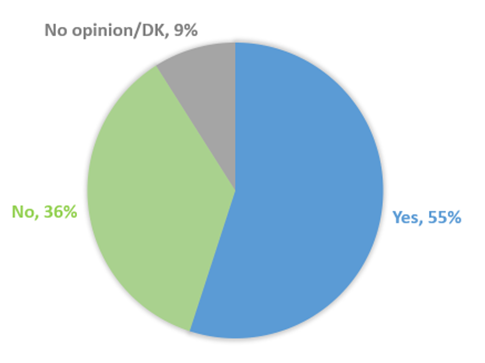
Figure 3. Do you have any concerns about the Protocol’s full operational scope and impact?
A majority (55%) said they do have concerns about the full operational scope of the Protocol (i.e. without current grace periods and assuming full implementation) and its impact. Those with concerns were then asked to indicate how concerned they were about eight issues. We selected these issues as those that relate most closely to the UK Government’s concerns and to the end of the grace periods.
The issue of most concern to this 55% of respondents was customs declarations for parcels being moved into Northern Ireland from Great Britain. Of those indicating concern, 67% indicated they were ‘highly concerned’ about this matter. This translates to 37% of the total weighted sample being ‘highly concerned about customs declarations being required under the Protocol for parcels moving from Great Britain into Northern Ireland. Other issues of most concern were potential restrictions on plants, seeds and chilled meats being brought into Northern Ireland from Great Britain (see Figure 4).
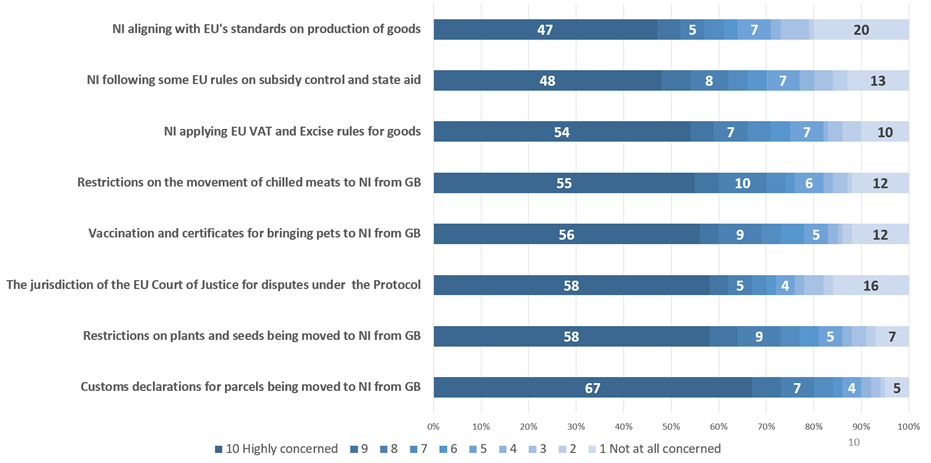
Figure 4. Relative importance of issues for the 55% of voters with concerns about the full scope and impact of the Protocol (i.e. without current grace periods and assuming full implementation)[5]
Northern Ireland’s alignment with EU standards on goods is the issue of least concern to the 55% of respondents to the poll with concerns; and 20% had no concerns on the alignment issues. 16% have no concerns about the jurisdiction of the EU Court of Justice. Another matter of lesser concern is the application of EU rules on state aid.
Experience and opinions of food shopping in Northern Ireland after Brexit and the Protocol
Given the concerns around the movement of goods – particularly foodstuffs – from Great Britain into Northern Ireland, respondents were also asked about their experiences of and preferences regarding food shopping (see Figure 5).
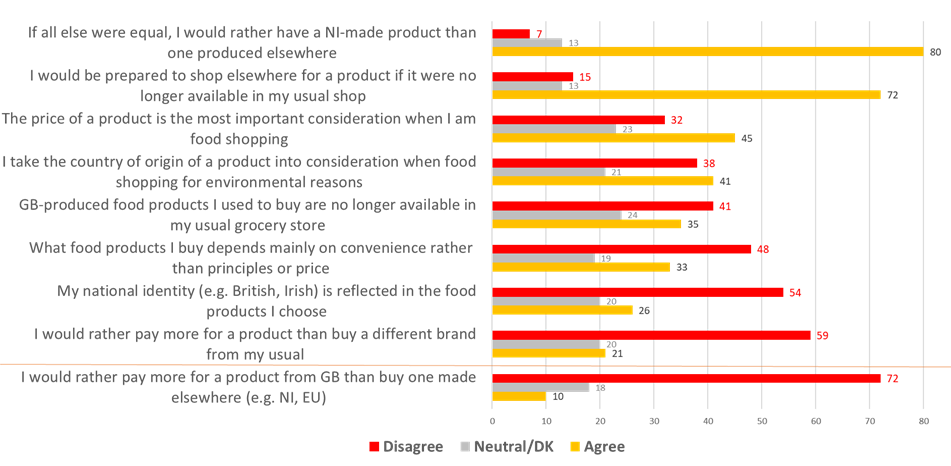
Figure 5. Experience of food shopping in Northern Ireland post-Brexit and under the Protocol
Just over a third (35%) agreed that Great Britain-produced food products that they used to buy were no longer available where they usually shopped. The majority either disagreed (41%) or were neutral (14%) or had no opinion (10%).
One quarter (26%) agreed that their national identity was reflected in the food products they choose to buy, whereas over half (54%) disagreed. 72% said they would be prepared to shop elsewhere for products if no longer available in their usual shop. Notably, environmental considerations (carbon footprint, food miles) are taken into account by the plurality of respondents (41%), which indicates the importance of considerations in food shopping other than price, convenience and country of origin.
The overwhelming majority (80%) agreed that, if all else were equal, they would prefer to have a Northern Ireland-made product to one produced elsewhere.
Trust to manage the interests of Northern Ireland vis-à-vis the Protocol
Implementation of the Protocol involves a range of actors. As with all four previous polls, the only group that is trusted by a majority to manage the interests of Northern Ireland with respect to the Protocol are Northern Ireland’s business representatives (60%), and the level of trust has increased to its highest across the five polls to date (see Figure 6).
Trust in the UK government continues to be extremely low (5%), as in all previous polls. More than four fifths of respondents (84%) continue to distrust the UK government with a majority continuing to distrust it ‘a lot’ (55%).
By contrast, trust in the European Commission/EU stands at 47%, and at 45% for the Irish government. However, views are sharply divided, with 43% and 42% distrusting the EU and Irish government respectively. Only around 10% hold no opinion on whether they can trust these actors or not.
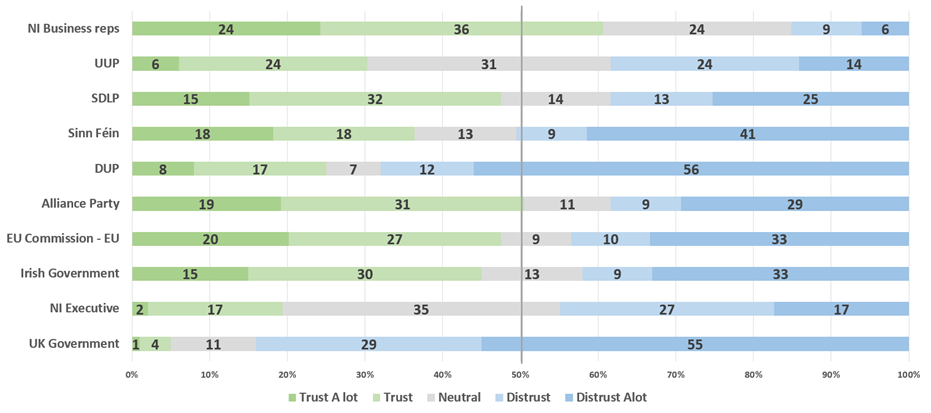
Figure 6. Levels of trust in/distrust of actors to manage the interests of Northern Ireland with respect to the Protocol
Trust in the Northern Ireland Executive to manage the interests of Northern Ireland with respect to the Protocol remains strikingly low (19%) (with only the UK Government suffering lower levels of trust) but there has been a slight drop in levels of distrust to 44%.
As for the levels of trust in the five political parties that formed the last Northern Ireland Executive, these have all improved with the Alliance Party (50% trust/trust a lot) and the Social Democratic and Labour Party (SDLP) (43% trust/trust a lot) performing best. Distrust of these two parties has dropped and is at the same level as for the Ulster Unionist Party (UUP) (38%). Levels of distrust remain markedly higher for Sinn Féin (50%) and the DUP (68%). As in the three previous polls, it is notable how many respondents – three out of ten – remain neutral towards the UUP.
Written comments on politics and political parties in Northern Ireland
Comments provided by respondents for this poll included some general and specific criticisms of politics in Northern Ireland. There was, however, significant criticism of the DUP, with 12% of optional written responses focusing on the party’s handling of Brexit or its decision not to elect a Speaker to the Northern Ireland Assembly nor a deputy-First Minister, thereby preventing the formation of an Executive, in protest against the Protocol:
“I believe that the DUP have in part manufactured the problems with the Protocol, one moment it is a constitutional issue, next it is about trading problems causing serious harm to the economy of NI which, according to many business people, is not true, yes it is causing problems but it is not a crisis.”
"The DUP need to stop misleading the public over the “effects” of the Protocol and start telling the truth, or step aside, stop taking their salaries and let the rest of the politicians get on with it.”
"The actions of the DUP at a time of economic crisis are a disgrace. They are doing this to avoid power sharing as a junior partner.”
“Stop the DUP MLAs pay if they refuse to go back to work.”
Alongside comments directed at the DUP, 10% of submitted comments stated general opposition to the lack of fully functioning devolved government in Northern Ireland at present:
“Whatever some people’s issues are with the Protocol, they are no justification for blocking the full operation of the Assembly and the forming of an Executive. The majority of people in NI have much more pressing issues that need political leadership and action such as the NHS, poverty, and the rising costs of keeping warm.”
"Protocol is not as important to me as the Assembly getting to work.”
“I strongly believe our MLAs should return to the Assembly as it is other people on the ground who will be disadvantaged e.g., hospital treatment, price of fuel, to sum it up, the bread-and-butter issues that we all face.”
“Whatever the views/impact of the Protocol it is not good enough that we do not have a working government.”
Views expressed in the comments were, however, divided with a small number also stating support for the DUP’s boycott of the Northern Ireland institutions over the Protocol. For example:
“No return to Stormont until Protocol has gone. DUP have finally got the message.”
“Hopefully there will be no Assembly until the Protocol is completely scrapped.”
Democratic consent and MLAs
The future of core provisions of the Protocol – those relating primarily to the movement of goods (i.e. Articles 5-10) – is subject to the democratic consent of members of the Northern Ireland Assembly (MLAs) in a vote that is to be held up to every four years. MLAs will first vote in November/December 2024.
Most respondents (92%) have a view on how they wish their MLAs to vote: 52% in favour of the continued application of Articles 5-10 and 40% against (see Figure 7). These mirror the figures from October 2021 and so confirm the marked gap in views that has emerged since the June 2021 poll when voters were split almost evenly (46% in favour and 45% against).
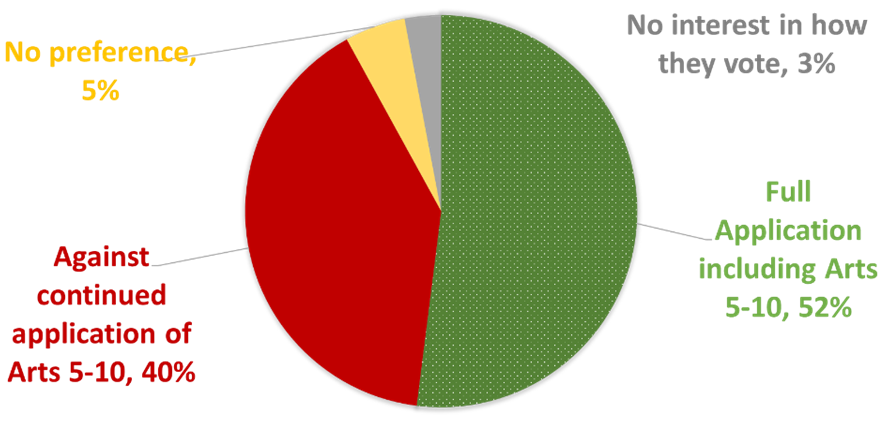
Figure 7. How would you like the MLAs you voted for in the most recent Assembly election to vote in the democratic consent vote on the Protocol in 2024?
This shows considerable continuity in the positions expressed since our polling began in early 2021 (see Figure 8), although the margin between the two positions is the largest of the five polls conducted to date.
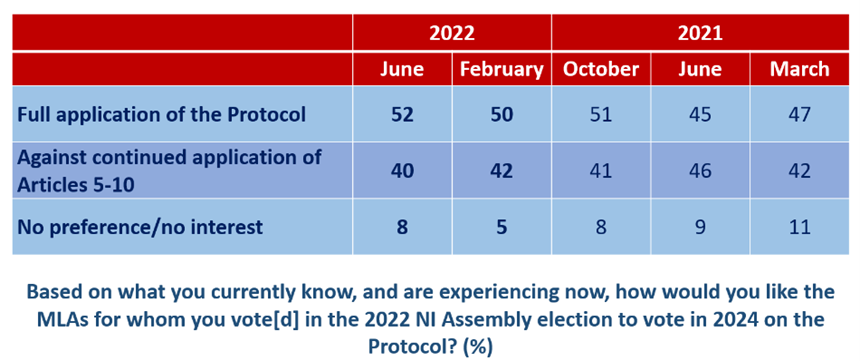
Figure 8. Comparing views on the ‘democratic consent vote’ over the five polls
In previous polls we asked how a candidate’s position on the Protocol might affect a respondent’s willingness to vote for them. In this poll we asked what difference it actually made when they cast their votes in the Northern Ireland Assembly election in May 2022 (see Figure 9).
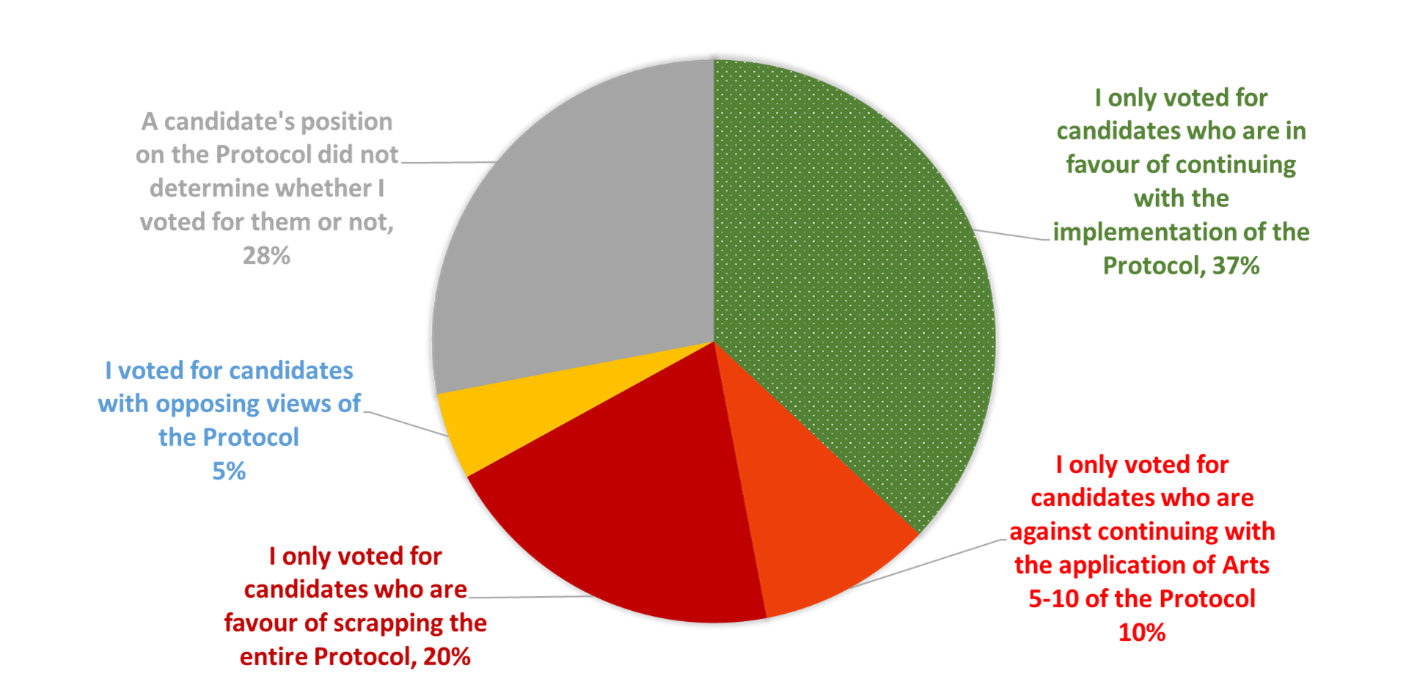
Figure 9. How important was a candidate's position on the Protocol for your vote in the recent Assembly election?
Two-thirds of respondents (67%) say they voted in the recent Northern Ireland Assembly election for candidates who share their view on the Protocol. One in five respondents only voted for candidates who are in favour of scrapping the Protocol; almost double that proportion (37%) only voted for candidates in favour of continuing with the Protocol’s implementation. For most of the remaining voters, a candidate’s position on the Protocol did not determine whether they voted for them or not (28%). This is a higher proportion than the 20% of respondents who in previous polls indicated that a candidate’s position would not matter for how they would vote.
Public opinion on what might come next
The final section of the poll involved a re-run of some previous questions, some questions regarding the possibility of unilateral action by the UK government on the Protocol, and some questions on the significance of recent political developments for the Protocol (see Figure 10).
As noted above, more than three-fifths of respondents (65%) continue to agree that the Protocol provides Northern Ireland with ‘a unique set of post-Brexit economic opportunities compared to the rest of the UK which if exploited could benefit Northern Ireland’. The figure confirms the upward trend through the previous polls in March (50%), June (57%) and October 2021 (62%) and in February 2022 (63%).
More than three-quarters of respondents (77%) have heard about the measures recently adopted by the EU to maintain the security of supply of medicines to Northern Ireland. Previous polls indicated that the medicines supply issue was the priority concern of voters in Northern Ireland.
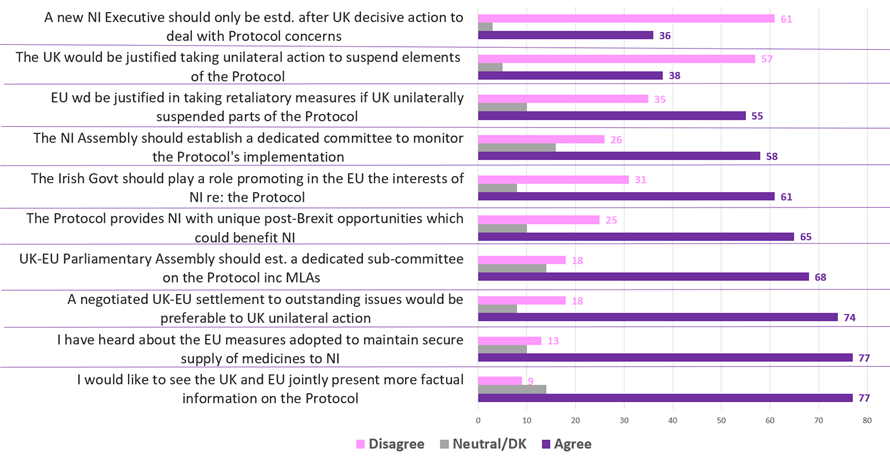
Figure 10. Views looking ahead on the Protocol
On whether a new Northern Ireland Executive should only be established once the UK has taken decisive action on the Protocol to address the concerns that voters in Northern Ireland have with it, only a minority (36%) agreed; 61% would prioritise the establishment of an Executive.
When it comes to matters of the governance of the Protocol and ‘voice’ from Northern Ireland, there continues to be clear and consistent patterns. A majority of respondents (68%) agrees that the recently established UK-EU Parliamentary Partnership Assembly should have a sub-committee dedicated to Northern Ireland and that this sub-committee should include MLAs; 18% disagree. Both figures represent a slight increase on the results (64% and 15%) of the February 2022 poll.
A majority of respondents (58%) also agreed that the Assembly should establish a committee dedicated to monitoring the implementation of the Protocol; 23% disagreed.
And on whether the Irish government should play a role in promoting the interests of Northern Ireland on the Protocol in the EU, 61% agreed. Almost a third (31%) of respondents disagreed.
A final question concerned whether voters would like to see the EU and the UK jointly present more factual information on the Protocol. More than three-quarters of respondents (77%) agreed. Only 9% disagreed.
UK-EU tensions over the Protocol and what should happen
Concerns over the Protocol clearly exist, yet whether the UK and the EU can agree on how they can be resolved remains to be seen. We know that the UK Government has moved recently with the Northern Ireland Protocol Bill to take decisive action.
On whether the UK government would be justified in taking unilateral action to suspend elements of the Protocol, a majority of respondents (57%) disagree; 38% agree the UK would be justified (Figure 11). This is similar to the response to the question asked in previous polls as to whether the UK would be justified in triggering Article 16 and adopting safeguard measures. In February 2022 a majority of respondents (53%) disagreed and 39% were of the view that the UK government would be justified in triggering Article 16.
On whether the EU would be justified in taking retaliatory action if the UK did unilaterally suspend elements of the Protocol, a majority (55%) agreed that it would; 35% disagreed (see Figure 12).
A negotiated EU-UK settlement of outstanding issues regarding the implementation of the Protocol is seen by almost three quarters of respondents (74%) as preferable to the UK taking unilateral action (see Figure 13).
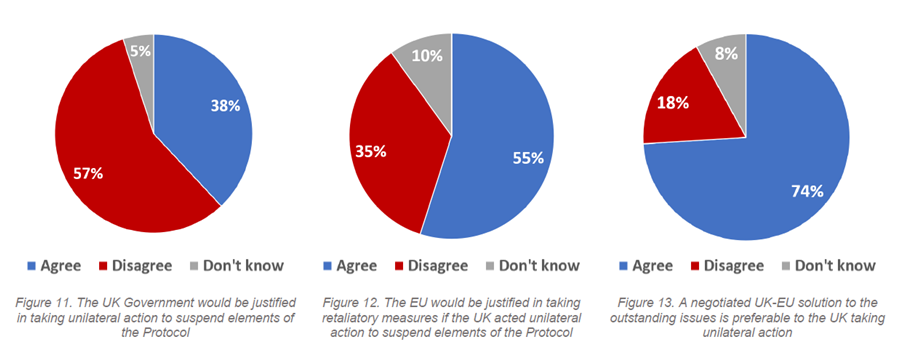
The full report can be downloaded here: Testing the Temperature 5
